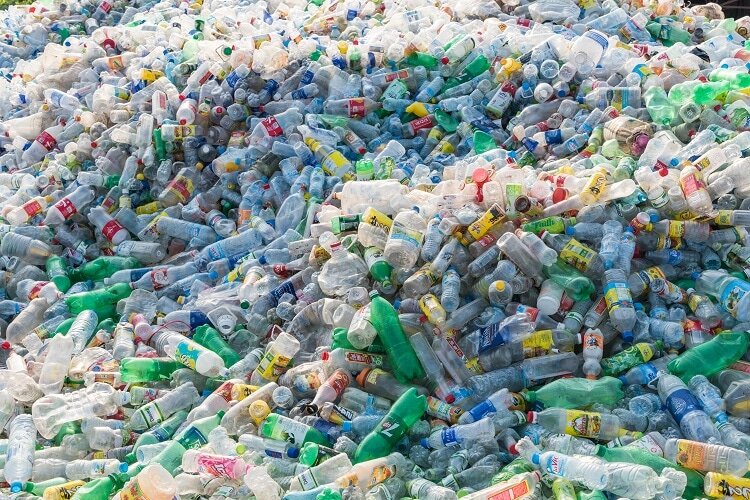Every year, 125 kg of plastic is consumed per capita. Where does this end up?
Switzerland is considered a clean country with intact nature and efficient waste infrastructure. And this despite the fact that the Swiss are the world's third-largest waste producers.
Just under half of the plastic is collected, sorted, cleaned and reused as a material or raw material. Waste that cannot be recycled is incinerated. Since 2000, waste is no longer disposed of in landfills anywhere in Switzerland. Electricity and heat are produced from refuse in waste incineration plants. Since plastic is a petroleum product that has a high calorific value, the incinerators gladly accept plastic waste. An ideal solution for everyone. Right?
Not quite. Incineration leads us to believe that the problem has been cleanly solved. Yet the incineration process produces about 800,000 tons of filter ash and highly toxic slag each year, in addition to carbon dioxide. This hazardous waste is either
landfills or exported abroad. What is done with it abroad is often not followed up.
And although much of the plastic waste is supposedly recycled or incinerated locally, the media is full of stories about it ending up en masse in the ocean and environment, harming ecosystems and wildlife. So how does it get there?
To answer that, you have to elaborate. Not all plastic can be recycled. Many plastics are not sorted by type because they are either mixed together or substances are added to them. However, only single-grade plastics can be recycled properly.
In view of their enormous plastic consumption, countries such as Switzerland or Germany have so far exported up to one million tons of such plastic waste annually to Malaysia, India, China and Indonesia in addition to their recycling and incineration measures. There, there is often no possibility for recycling or safe incineration at all. We are all familiar with pictures from Asia that show gigantic mountains of garbage that affect the lives of the poorest population groups.
The absurd thing about this is that the garbage is often considered recycled by us, even though there is no question of recycling at all in the destination countries. What is sold to us as recycled is sometimes washed into the sea in large quantities.
Once the plastic is in the oceans, a devastating process begins. Plastic is a substance that does not occur in nature. It is produced artificially, namely from the limited raw material petroleum, and it decomposes very slowly. It does not simply disintegrate, but is broken down more and more by friction from the outside. An ordinary plastic bottle takes 450 years to decompose.
By then, parts of it may end up in the stomachs of fish and other marine animals (and ultimately on our plates).
To minimize future environmental damage, we need to avoid as much plastic waste as possible. After all, the best waste is that which is not created in the first place.
More about Plastic:
Here's what you can do:
1. use reusable water bottles instead of plastic bottles
2. always take a reusable cloth bag with you when you go shopping
3. use strawganics instead of plastic straws
4. buy food without plastic packaging, for example at weekly markets
5. prefer environmentally friendly packaged products
6. prefer natural and/or biodegradable materials such as paper, wood, glass, leather, cotton, bamboo for all kinds of purchases
7. improve the way plastic can be used, collected and recycled at home and in the neighborhood
8. educate friends and family about the harmful effects of plastic waste


